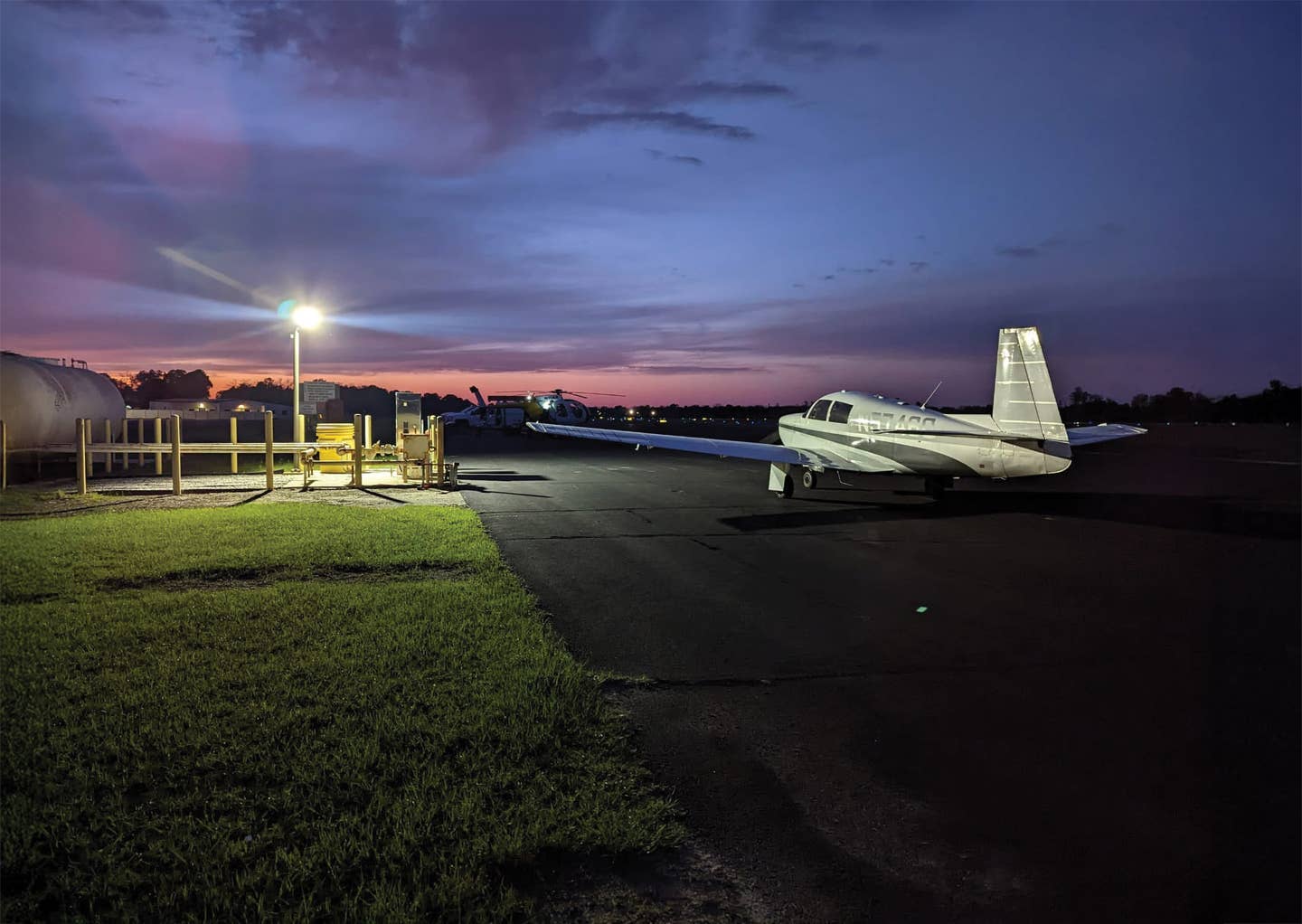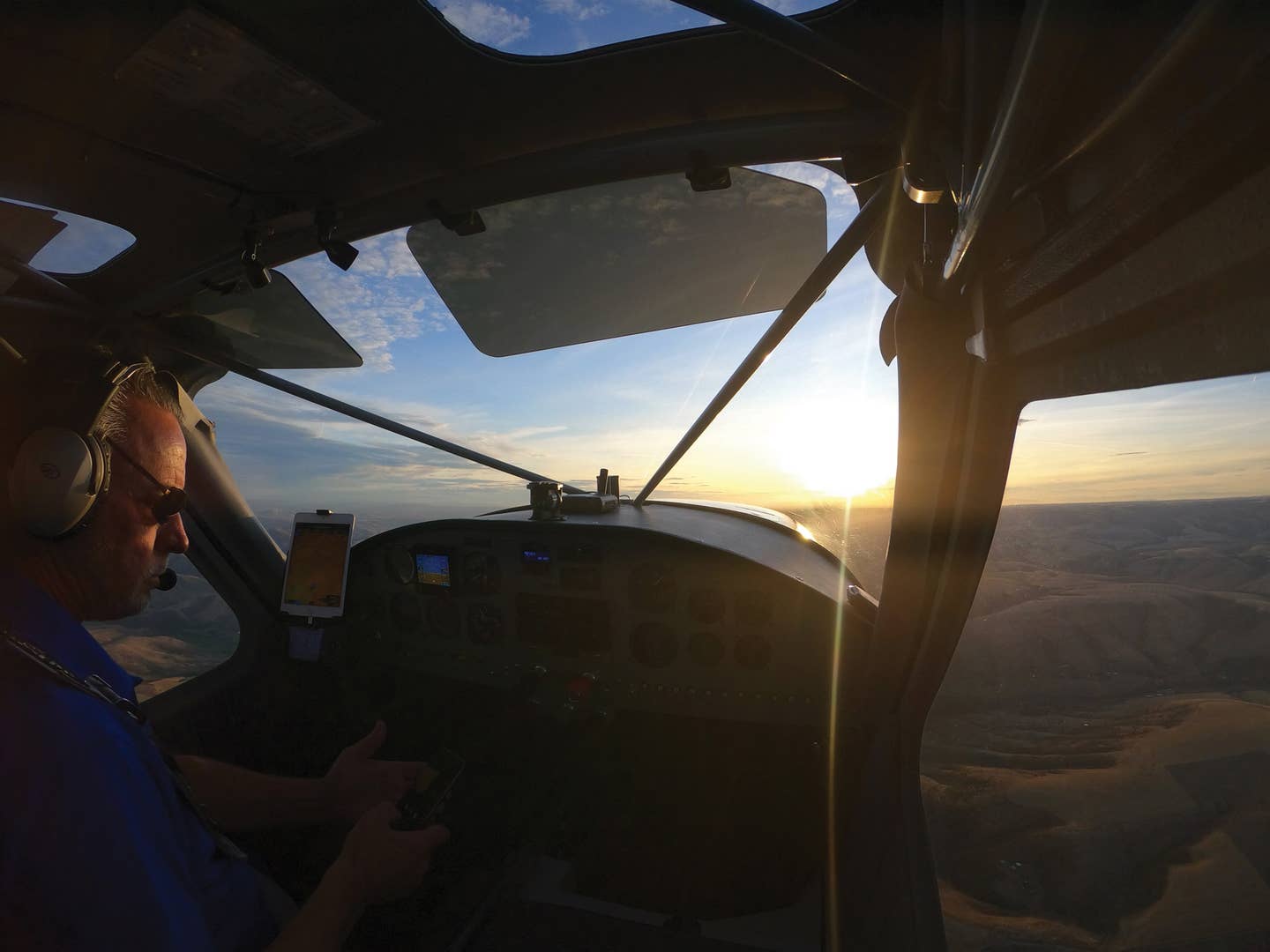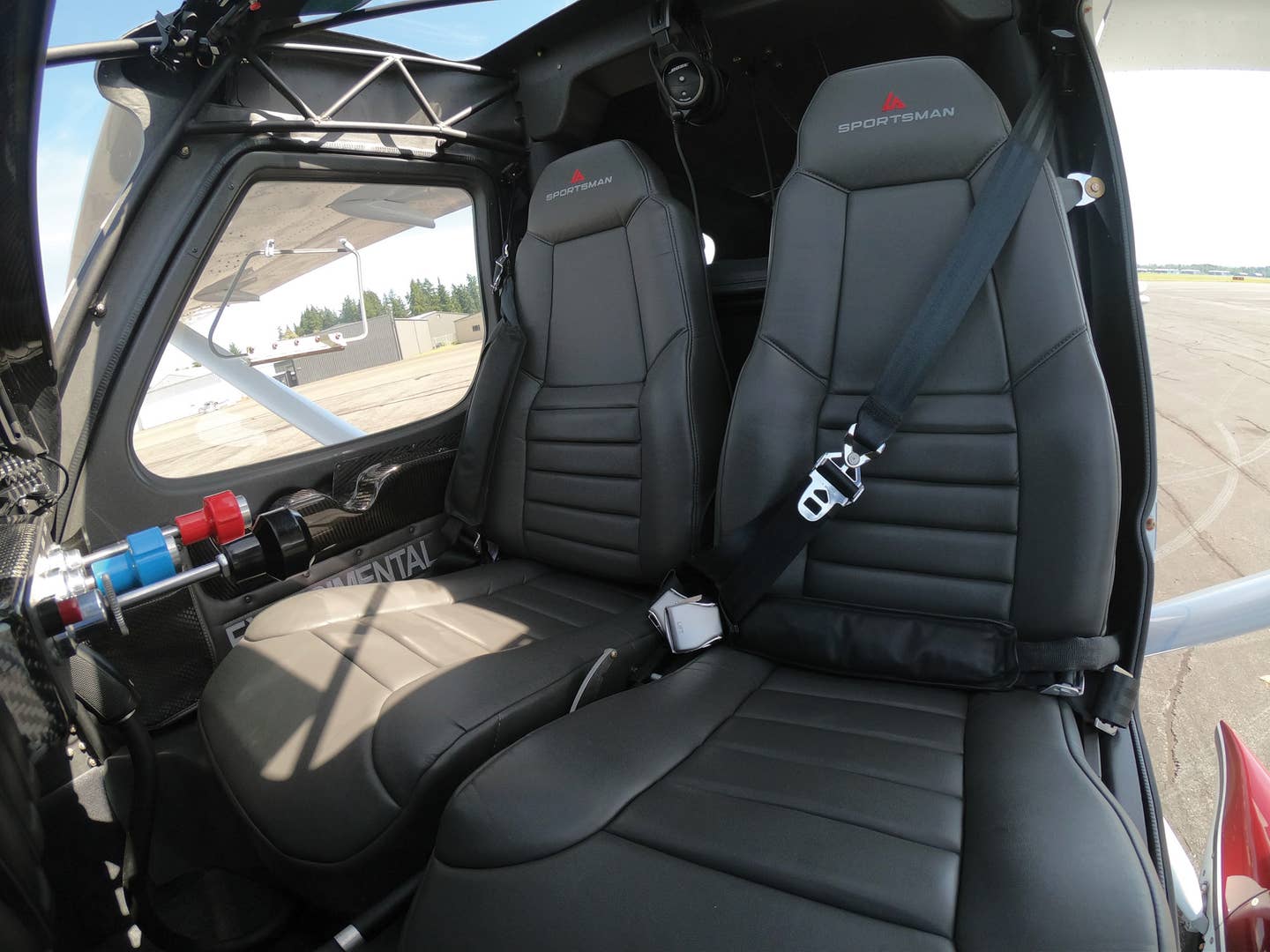Pilots Must Compartmentalize While In The Air
Focus on only what matters, even if other things matter too.
Sign up for our newsletter, full of tips, reviews and much more!
As an airshow pilot, I often get asked, "How do you deal with flying a low-level airshow when you're having a bad day?" It's a good question and one that I've struggled with myself. Like fighter pilots, airshow pilots have unique challenges and distractions to deal with. Airshow pilots live their life in the public flying aerial displays during all of life's events---relationship break ups, death of a family member and even death of friends at the same airshow. I have learned that continuing to perform and stay focused during life's challenges requires being able to set those things aside at least temporarily and focus only on the mission I am required to do. After I started flying, and especially flying competitively, I found that I could train to stay focused and block out distractions---and with practice, I learned to "compartmentalize."
We'd all love to wake up every single morning, yawn and stretch and jump out of bed feeling our best. That's not going to happen. No matter how well we eat, sleep and keep excesses in check, let's face it, some days are better than others. Life gets in the way and things that are often out of our control---a midnight phone call with bad news, an argument, dealing with relationship or job issues---all tend to throw us off balance. Yet we still need to rise and greet the day, showing our best side to the world without burdening everyone else with our personal roller coaster of emotions. The show must go on.
One of the reasons I enjoy aviation so much is that I get to rise above the mundane. To be a safe pilot, we have to put aside life's complications even before starting the engine. But when faced with adversity and life's challenges, how do we perform at our highest level? Whether a professional pilot or a weekend flier, we need to set those things aside, compartmentalize them, when stepping into the cockpit, keeping distractions to a minimum.
It's impossible to achieve peak performance without sublimating certain areas of our life for periods of time. When we have to focus on one activity without distraction, compartmentalization is the key. There are various definitions, but basically compartmentalizing is being able to separate parts of your life into isolated compartments. A pilot can't afford too much distraction while performing functions critical to safe flying, so the ability to block out distractions is extremely important. Understanding airplane systems and practicing procedures contribute to the safe operation of an airplane, but staying focused without distraction can be key to performing them. You must be able to fly the airplane when the tower is squawking, you're in the pattern, your passengers are asking questions, and something falls off the panel into your lap.
The military has long used and studied the concept of compartmentalization in the cockpit, and the technique has long been used by fighter pilots and athletes who have a "mission" that requires complete focus for a specific period of time. In "The Life Style Keys to Flight Deck Performance of the Naval Aviator---Another Window" author Frank E. Dully Jr. writes that "IT WOULD APPEAR to this flight surgeon that cockpit information systems and other forms of aircraft performance measurements are designed for use primarily by an uncluttered mind, capable of assimilation and interpretation with uncommon accuracy, in order to make the judgments and take the appropriate actions that will sustain safe flight."
But ignoring distraction and staying focused is not always easy. For example, you have prepared for a cross-country flight and have filed an Instrument flight plan because of bad weather along your route, but you and your partner have had a fight, and you can't get it out of your mind even though you know you must focus your full attention on your flight. We know it will be critical to focus on the flight without distraction, but sometimes it's just really hard.
Here are a few things that have helped me learn to use compartmentalization when dealing with adversity and extreme challenges in my flying career:
Use Rituals.
Checklists, procedures, a practice, flight and sleep apps are all helpful. Falling asleep can be a challenge for most of us at times, and I have used sleep rituals as a way to get better at compartmentalizing. When I was competing, I "flew" my aerobatic routines every night in my head to help me sleep, visualizing each maneuver. Every night I "flew" the routine with a different wind component, and after a short time I would fall asleep halfway through the routine. Now I have a sleep app that I've used for several years, and I'm so conditioned to it that when I start it at night, I immediately become more restful listening to the sounds of soft breaking waves. It's a form of conditioning that brings me into a mind-set conducive to falling asleep, and a way to compartmentalize the thoughts racing around my head.
Prepare for Fewer Distractions. Plan Ahead.
Since I have a hard time eliminating distractions and it's easy for my mind to go off on a tangent, I have to practice focusing on eliminating distractions before I begin something---whether a flight, writing an article or working on a project. If you're easily distracted, focus is something you can set yourself up to achieve. For e.g., If you're planning a flight, clean up the cockpit beforehand; don't leave things like papers or charts on the glare shield that can fall on your lap; tell your passengers beforehand that you need a sterile---e., quiet---cockpit during take-off and landing. I always plug my cell phone into a charger before I take off, so if it falls off the seat I can easily reach it. If I'm writing an article, I set aside a specific time to do it, then clean off my desk and turn off my phone.
Identify the issues You're Dealing with Ahead of Time.
Decide you will set them aside to deal with them at a later, more meaningful time.
Get Away from it All.
If you're at home, set aside a specific place for certain activities. If you're in a busy environment with a lot going on, isolate yourself for a period of time. If you are at an FBO, go to the flight planning room or another quiet area if you need to clear your head and get away. Airshow pilots mean chill in their cars with the AC on before flying, getting away from people and other distractions. I purposely don't even read anything heavy and just look at fashion magazines or listen to music, nothing that clutters my mind. I don't believe in superstitions around airplanes, but we all have our rituals. Use them to your advantage.
Your ability to compartmentalize, prioritize and focus enough time on each area in order to make incremental progress toward a conclusion may be your most important skill. We actually have more experience with it than we realize, and the skill is rather innate. As kids we are trained to compartmentalize. For most kids the day is divided into play time, school time, homework time, TV time, reading and bed time. In a sense, we are trained to compartmentalize our entire life to get through trauma and adversity---we have to go to school, we have to show up for work, we have to keep our emotions in check at the hardest times. But learning to compartmentalize doesn't happen overnight. To learn to block out distraction and learn to focus in order to perform takes practice and intent. Move forward in incremental steps, and you will see the progress.
Once you start to compartmentalize your life and your flying, you will notice growth in all areas of your life. After I visualized my aerobatic routine while trying to go to sleep, night after night, I found that when I entered the box at a competition, I had already "flown" the routine, and that is when I started to win. I had learned to block out distractions and control my nervousness by focusing on only one thing. To be your most productive self, it is key. When you master compartmentalization, it will change your life.
Patty Wagstaff is a three-time U.S. National Aerobatic champion, inductee of the National Aviation Hall of Fame and one of the world's top airshow pilots. Visit pattywagstaff.com/school or reach Patty via email through pattyaerobatics@gmail.com.

Subscribe to Our Newsletter
Get the latest Plane & Pilot Magazine stories delivered directly to your inbox






